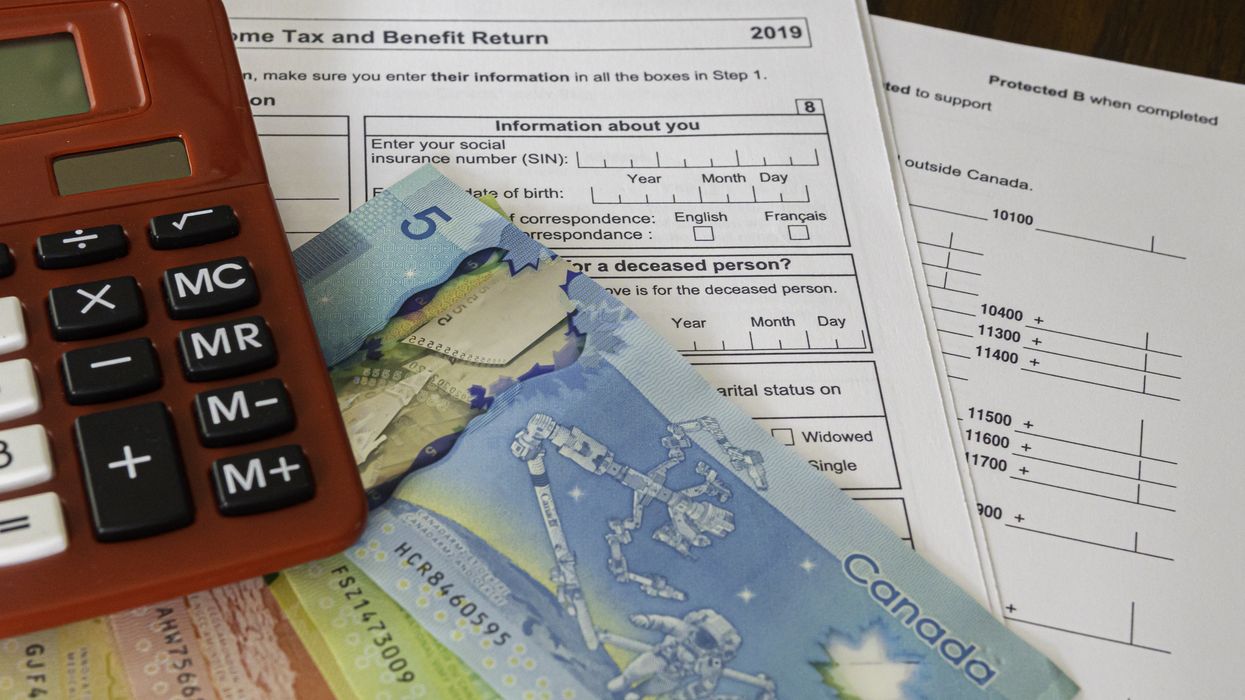8 Things The CRA Wants Every Canadian To Remember At Tax Time This Year
If you’re feeling a little worried about tax time this year, the Canada Revenue Agency (CRA) has got you covered!
The federal agency has shared a number of tips for Canadians looking for tax help in Canada and they’ve explained the biggest dos and dont's when it comes to filing.
Here's everything you need to know:
Editor's Choice: Multiple Canadian Cities Are Among The 'Least-Affordable' In The World In 2021
File your return
While the tax season is expected to be “incredibly complicated” this year, the CRA is reminding Canadians how important it is to file taxes.
Even if you don’t owe tax on your income, or if you had no income at all, the agency says it’s still essential to make sure you can “get any benefits and credits you may be eligible for.”
Failing to complete your taxes on time could result in fees and penalties on top of the money you owe.
Do it online
This year, in particular, the CRA suggests filing your tax returns online.
The agency says doing this will enable Canadians to get refunds faster and to avoid any delays.
“If you file by paper, COVID-19 may cause delays in processing paper returns, processing changes to your return, as well as delivering notices of (re)assessment and cheques in the mail,” the statement explains.
Don’t forget benefits and deductions
There are several tax deductions, credits and expenses that can be claimed on your return.
This includes the Canada child benefit, the goods and services tax/harmonized sales tax credit and similar provincial or territorial benefits.
This year, you may also be able to claim the government’s home office expenses deduction if you worked from home for extended periods during 2020.
Include all types of income
When filing, all types of income must be included in your return.
This includes all COVID-19 benefits, including the Canada Emergency Response Benefit (CERB), Canada Emergency Student Benefit (CESB), and the three Recovery Benefits.
It also includes income from side hustles, tips earned at work, money earned from social media and income from the gig economy (such as Airbnb, Uber, Lyft, Uber Eats and DoorDash).
“Reporting all of your income helps contribute to the social and economic well-being of Canadians in need by supporting benefits and programs delivered through the tax system,” the CRA explains.
Make the right claims
It’s easy to make mistakes on your taxes, so the CRA suggests double-checking what you can and can’t claim.
“Sometimes people mistakenly claim costs that are not eligible for tax deductions,” the CRA says.
If the CRA finds a mistake, the agency will adjust it accordingly.
Common adjustments are made for things like funeral and wedding expenses, loans to family members, and reimbursed medical expenses such as prescription drug claims.
Use “My Account”
Using the CRA’s “My Account” allows taxpayers to manage their returns easily online and from home.
It allows Canadians to view and update their personal details, see how much money is owed to the CRA, check the status of their returns and more.
Complete on time
Individuals who have a balance owing are advised to pay it in full before the deadline to ensure interest is not charged.
If you're unable to fully repay the amount owed, you should still file your taxes on time as a payment arrangement with the CRA may be possible.
The CRA’s late-filing penalty is 5% of the balance owing on the return's due date, plus 1% for every month the return is late (to a maximum of 12 months).
Keep receipts and documents
“You should keep all your receipts and documents for at least six years starting from the end of the last taxation year to which they relate,” says the CRA.
The agency will sometimes double-check returns to ensure that income, deductions and credits are properly reported, so having receipts and records will help to support any claims in this case.
